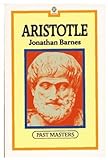(PhysOrg.com) -- A statistical phenomenon, called the Wisdom of Crowds, happens when a group of individuals make guesses and the average of the guesses reveal accurate average answers. However, researchers have discovered that when the individuals are made aware of other participant’s guesses, there is a clear disruption to the accuracy of the guesses.
Notes and observations. Diversions and digressions. All done far too infrequently.
Tuesday, May 17, 2011
Information sharing interferes with 'wisdom of crowds': study
Information sharing interferes with 'wisdom of crowds': study
Sunday, May 08, 2011
Fukuyama on Hayek
A balanced review a tour-de-force
Unlike Beck, Hayek was a very serious thinker, and it would be too bad if the current association between the two led us to dismiss his thought. Hayek always had problems getting the respect he deserved; even when he was awarded the Nobel in economic science in 1974, the awards committee paired him with the left-leaning economist Gunnar Myrdal. With the passage of time, however, many of the ideas expressed in “The Constitution of Liberty” have become broadly accepted by economists — e.g., that labor unions create a privileged labor sector at the expense of the nonunionized; that rent control reduces the supply of housing; or that agricultural subsidies lower the general welfare and create a bonanza for politicians. His view that ambitious government-sponsored programs often produce unintended consequences served as an intellectual underpinning of the Reagan-Thatcher revolution of the 1980s and ’90s. Now that the aspirations of that revolution are being revived by Tea Partiers and other conservatives, it is useful to review some of the intellectual foundations on which it rested.
Thursday, May 05, 2011
Current reading
I am currently reading Aristotle by Jonathan Barnes, which is a very good primer on the "prince of philosophy."
From the summary at bookfinder:
From the summary at bookfinder:
The influence of Aristotle, the prince of philosophers, on the intellectual history of the West is second to none. In this book Jonathan Barnes examines Aristotle's scientific researches, his discoveries in logic and his metaphysical theories, his work in psychology and in ethics and politics, and his ideas about art and poetry, placing his teachings in their historical context.
Subscribe to:
Posts (Atom)
